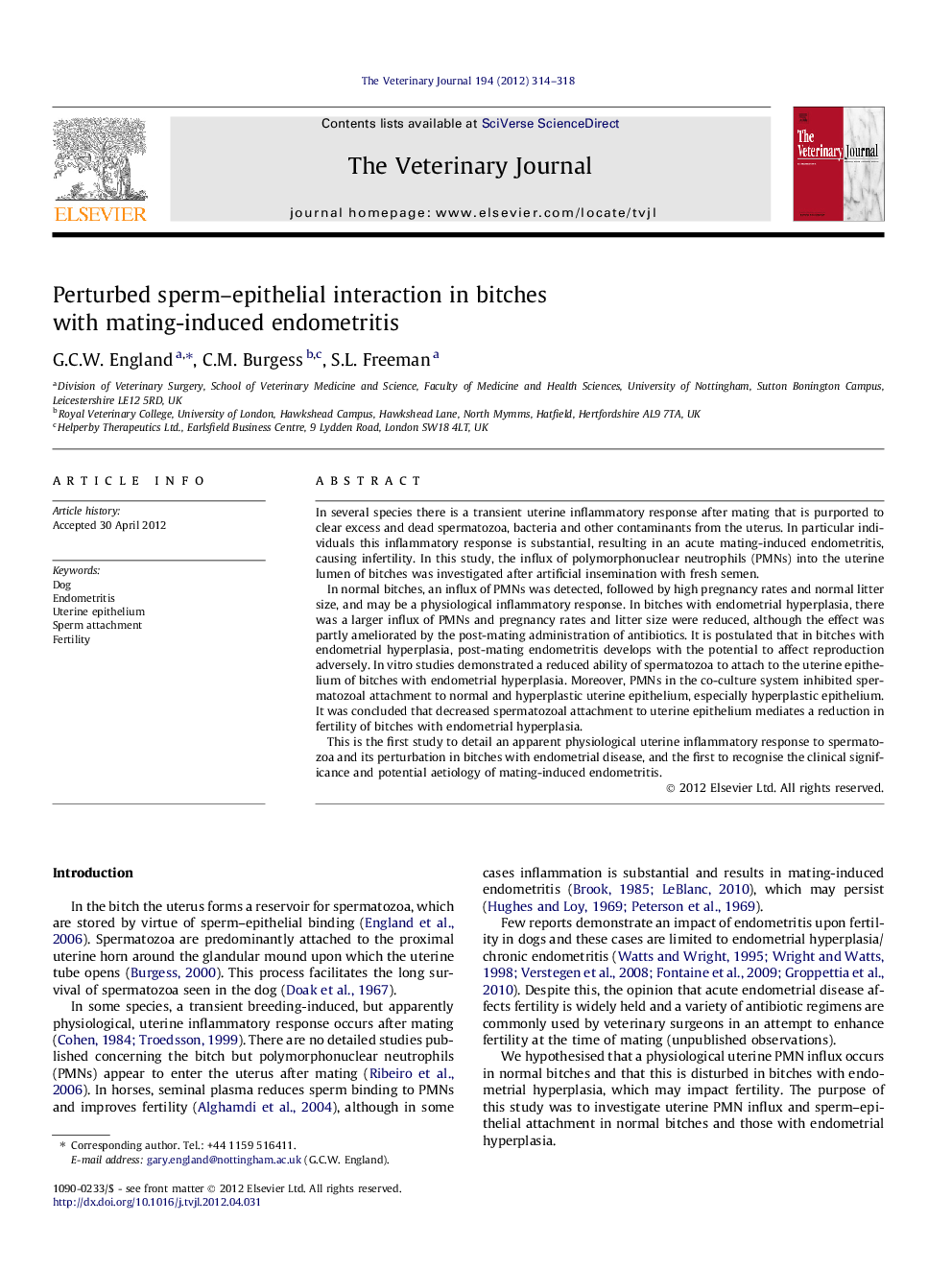| Article ID | Journal | Published Year | Pages | File Type |
|---|---|---|---|---|
| 2464221 | The Veterinary Journal | 2012 | 5 Pages |
In several species there is a transient uterine inflammatory response after mating that is purported to clear excess and dead spermatozoa, bacteria and other contaminants from the uterus. In particular individuals this inflammatory response is substantial, resulting in an acute mating-induced endometritis, causing infertility. In this study, the influx of polymorphonuclear neutrophils (PMNs) into the uterine lumen of bitches was investigated after artificial insemination with fresh semen.In normal bitches, an influx of PMNs was detected, followed by high pregnancy rates and normal litter size, and may be a physiological inflammatory response. In bitches with endometrial hyperplasia, there was a larger influx of PMNs and pregnancy rates and litter size were reduced, although the effect was partly ameliorated by the post-mating administration of antibiotics. It is postulated that in bitches with endometrial hyperplasia, post-mating endometritis develops with the potential to affect reproduction adversely. In vitro studies demonstrated a reduced ability of spermatozoa to attach to the uterine epithelium of bitches with endometrial hyperplasia. Moreover, PMNs in the co-culture system inhibited spermatozoal attachment to normal and hyperplastic uterine epithelium, especially hyperplastic epithelium. It was concluded that decreased spermatozoal attachment to uterine epithelium mediates a reduction in fertility of bitches with endometrial hyperplasia.This is the first study to detail an apparent physiological uterine inflammatory response to spermatozoa and its perturbation in bitches with endometrial disease, and the first to recognise the clinical significance and potential aetiology of mating-induced endometritis.
